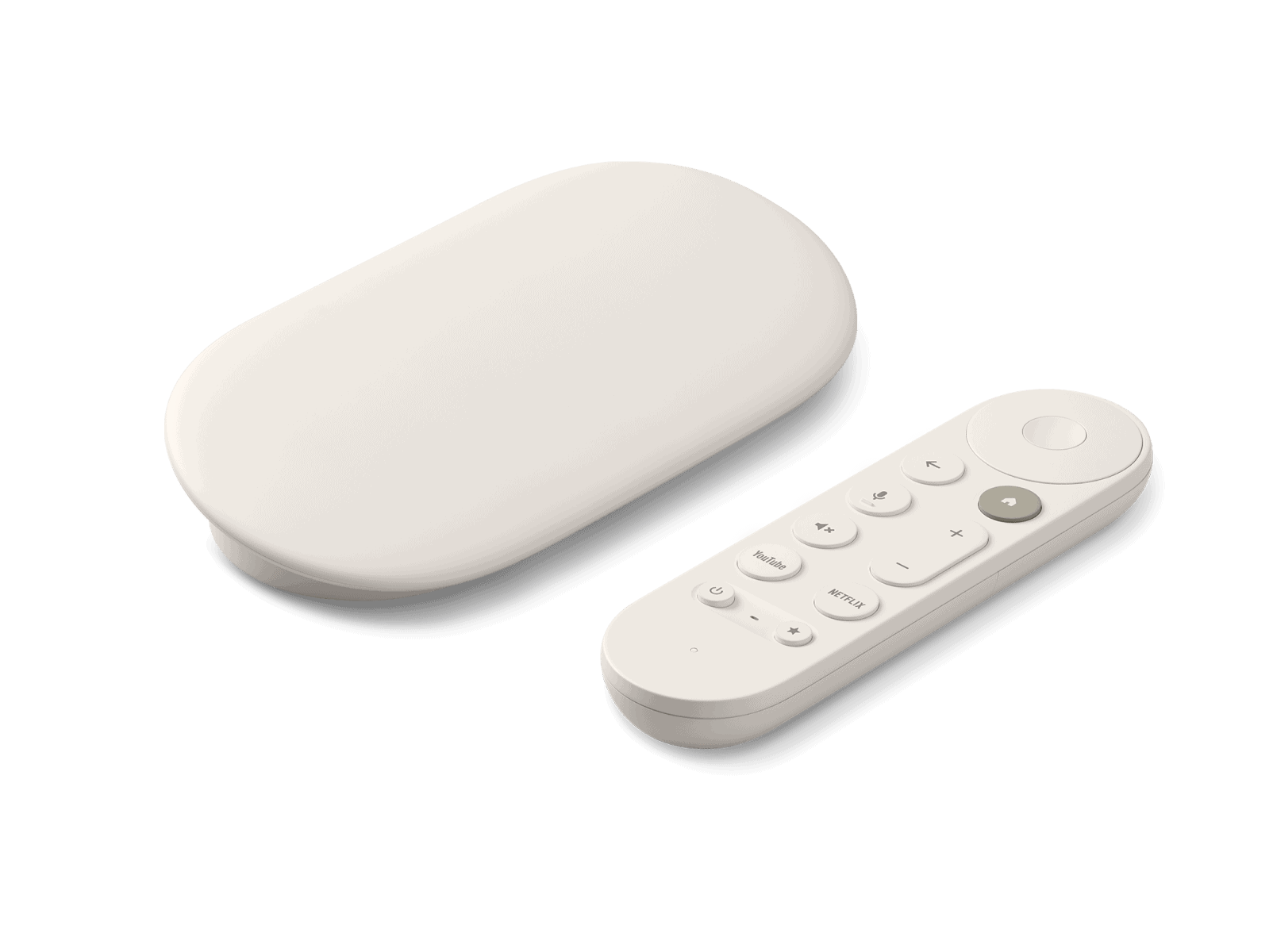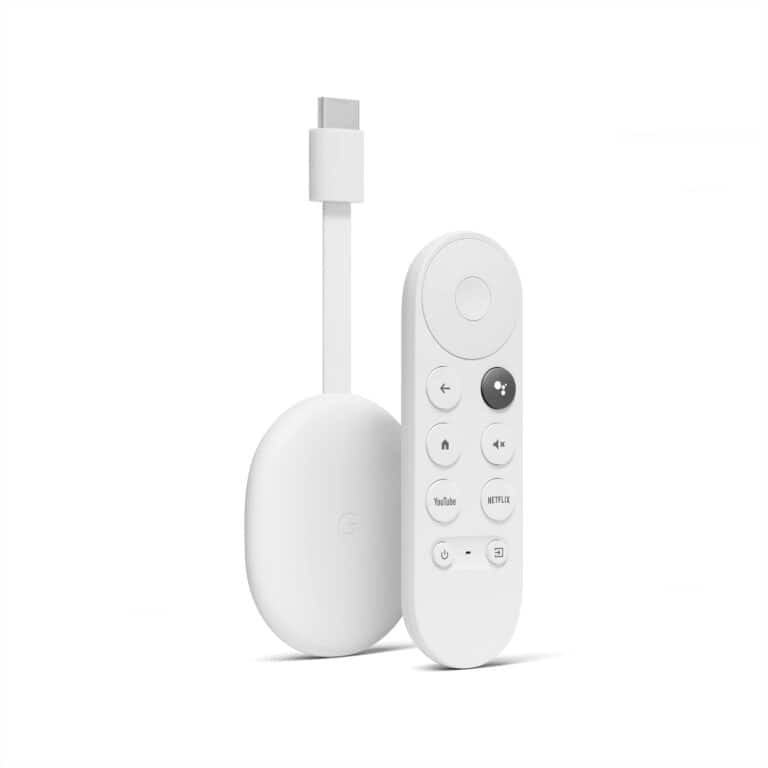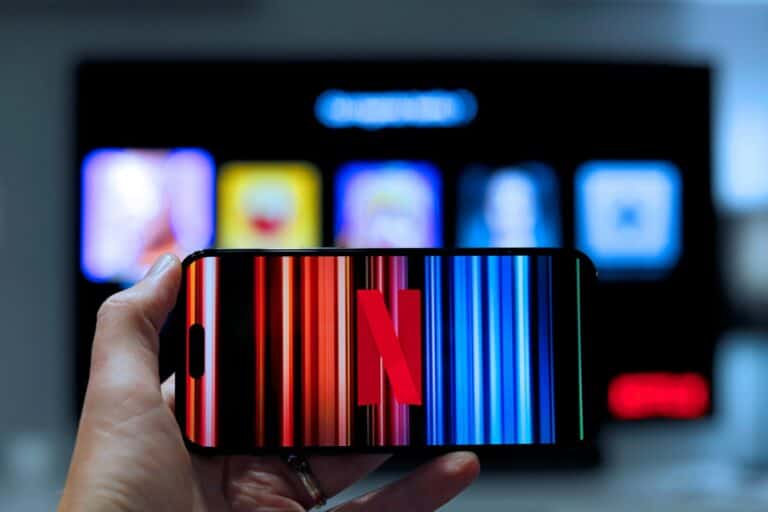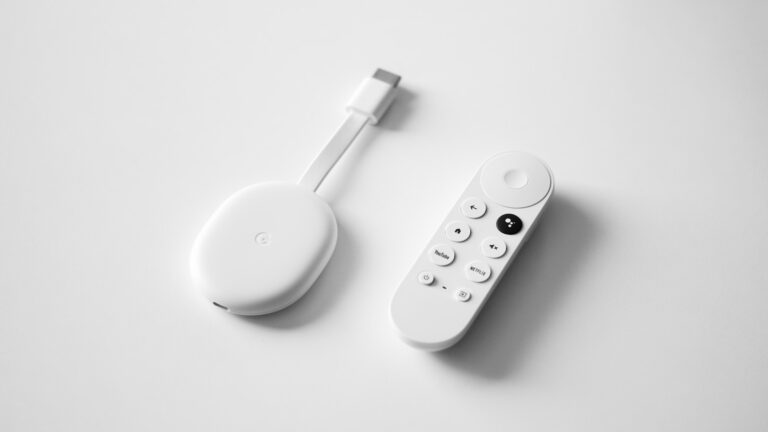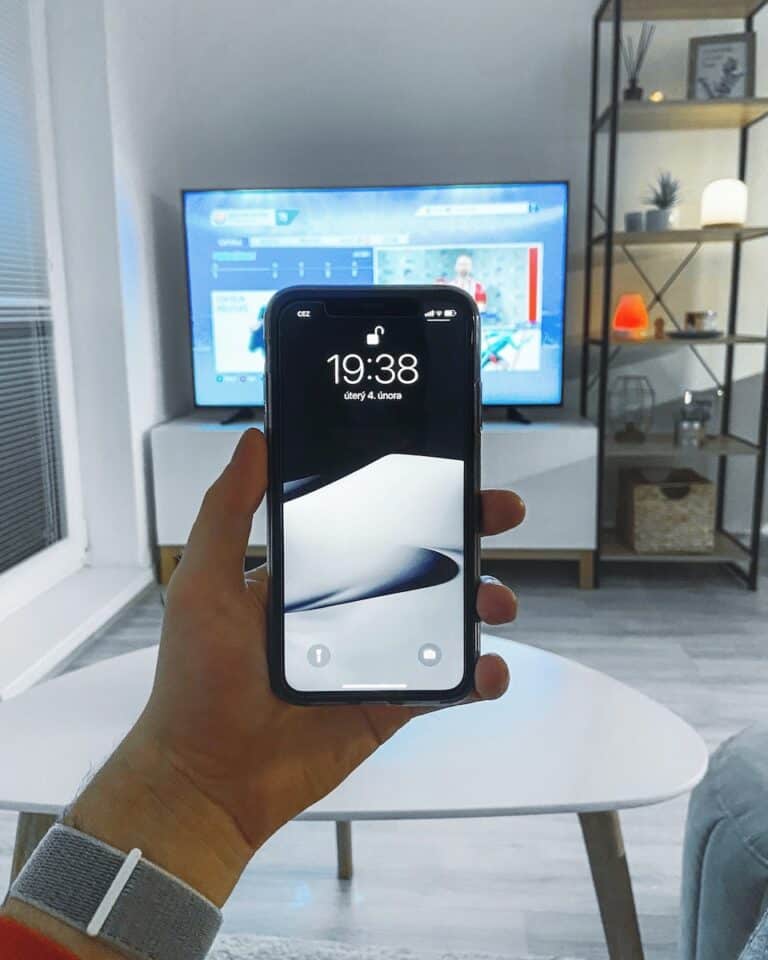Google has retired the Chromecast brand and replaced it with the Google TV Streamer. Both devices serve the same purpose—bringing streaming apps and Google TV to any television—but they take different approaches in design and performance. The Google TV Streamer is the direct successor to Chromecast with Google TV, offering updated hardware and a more traditional set-top box style.
While Chromecast with Google TV was a small dongle that plugged into the back of a TV, the Google TV Streamer looks more like a compact box. This change allows for better airflow, faster processing, and more consistent performance. For anyone deciding which device makes more sense, the comparison comes down to usability, speed, and long-term support.
Choosing between the two depends on whether the older Chromecast’s simplicity is enough or if the newer Google TV Streamer’s upgrades justify a switch. Both still run Google TV, support 4K streaming, and integrate with smart home features, but the Streamer positions itself as the future of Google’s streaming devices.
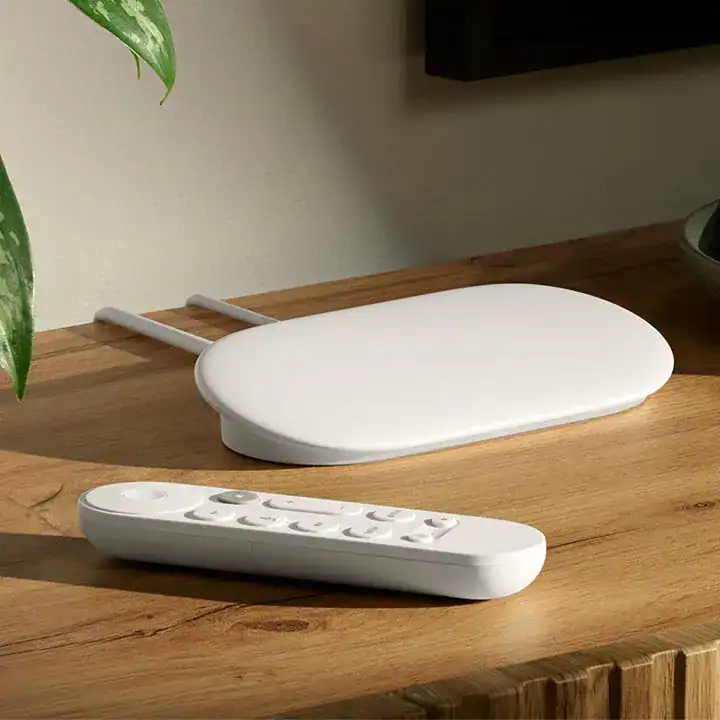
Google TV Streamer (4K) vs Chromecast
Google has officially moved on from the Chromecast era with the introduction of the Google TV Streamer (4K), marking a significant evolution in their streaming device strategy. Here’s a comprehensive comparison of the key differences and upgrades.
| Feature | Google TV Streamer (4K) | Chromecast with Google TV (4K) |
|---|---|---|
| Design | Set-top box form factor | HDMI dongle |
| Placement | Sits on TV stand/shelf | Hangs from HDMI port |
| Dimensions | Larger footprint | Compact dongle design |
| Weight | Heavier (better stability) | Ultra-lightweight |
| Video Quality | 4K, HDR10, HDR10+, Dolby Vision | 4K, HDR10, HDR10+, Dolby Vision |
| Processor | Enhanced chipset (faster) | Amlogic S905X3 |
| RAM | Increased capacity | 3GB |
| Storage | More internal storage | 8GB |
| Performance | Faster navigation, less lag | Occasional slowdowns |
| WiFi | Improved antenna design | Standard WiFi (can be unstable) |
| Connectivity | Enhanced ports/options | HDMI + USB-C power |
| Remote Control | Updated, improved design | Basic remote with voice |
| Voice Assistant | Enhanced Google Assistant | Google Assistant |
| Smart Home Hub | Built-in hub capabilities | Limited smart home features |
| App Performance | Smoother app switching | Can struggle with heavy apps |
| Boot Time | Faster startup | Slower boot process |
| Heat Management | Better heat dissipation | Can get warm when used extensively |
| Price | Higher price point | More budget-friendly |
| Availability | Currently available | Discontinued |
| Target User | Premium streaming experience | Budget-conscious users |
| Gaming | Better performance for cloud gaming | Limited gaming capability |
| Multitasking | Handles multiple apps better | Struggles with multitasking |
| Interface Speed | Fast, responsive Google TV | Google TV (slower performance) |
| Power Supply | External adapter | USB-C power cable |
| Setup Complexity | Standard setup | Plug-and-play simplicity |
| Portability | Less portable | Highly portable |
Quick Summary
Choose Google TV Streamer (4K) if you want:
- Best performance and speed
- Enhanced smart home integration
- Premium streaming experience
- Better multitasking capabilities
- Improved WiFi stability
Choose Chromecast with Google TV (4K) if you:
- Are on a tight budget
- Prefer ultra-compact design
- Need maximum portability
- Want simple plug-and-play setup
- Can find one (now discontinued)
Note: Google has officially discontinued the Chromecast with Google TV, so availability may be limited to remaining inventory.
Design and Form Factor
Major Design Overhaul The most immediately noticeable change is the complete departure from Chromecast’s iconic dongle design. While the Chromecast with Google TV hung directly from your TV’s HDMI port, the Google TV Streamer adopts a set-top box form factor that sits on your entertainment center or TV stand.
This design change brings practical benefits:
- Better heat dissipation
- More stable WiFi reception (no longer hidden behind your TV)
- Room for additional ports and features
- Enhanced overall build quality
Performance Upgrades
Processing Power The Google TV Streamer features significantly upgraded internals compared to the Chromecast with Google TV (4K). The new device includes:
- More powerful processor for smoother navigation
- Increased RAM for better multitasking
- Enhanced storage capacity
- Improved overall system responsiveness
Streaming Quality Both devices support 4K streaming, but the Google TV Streamer delivers:
- Better HDR performance
- More consistent 4K playback
- Reduced buffering and loading times
- Support for additional video codecs
Smart Home Integration
Enhanced Hub Capabilities One of the biggest upgrades is the Google TV Streamer’s expanded smart home functionality. The device now serves as more than just a streaming player:
- Built-in smart home hub features
- Better integration with Google Assistant
- Enhanced control over connected devices
- Improved voice command processing
Remote Control Improvements
Refined User Experience The Google TV Streamer comes with an updated remote that addresses many of the shortcomings of the Chromecast remote:
- Improved button layout and feel
- Better build quality and durability
- Enhanced voice control functionality
- More responsive navigation
Software and Interface
Google TV Experience Both devices run Google TV, but the newer Streamer offers:
- Faster interface navigation
- Quicker app launching
- More stable performance during heavy usage
- Better handling of multiple apps running simultaneously
Connectivity and Ports
Expanded Connectivity Options The larger form factor allows the Google TV Streamer to include additional connectivity options that weren’t possible with the dongle design:
- More robust WiFi antenna design
- Additional ports for expansion
- Better overall network performance
Pricing and Value Proposition
Investment Consideration The Google TV Streamer represents a premium upgrade over the discontinued Chromecast line. While more expensive, it offers substantial improvements in performance, features, and user experience that justify the price increase for many users.
Should You Upgrade?
From Chromecast with Google TV (4K) The upgrade is worthwhile if you:
- Experience performance issues with your current Chromecast
- Want better smart home integration
- Prefer a more stable, set-top box design
- Value improved processing power and responsiveness
From Older Chromecast Models This is definitely a significant upgrade offering:
- Full Google TV interface (vs. basic casting)
- Remote control functionality
- Much better performance and features
- Modern streaming capabilities
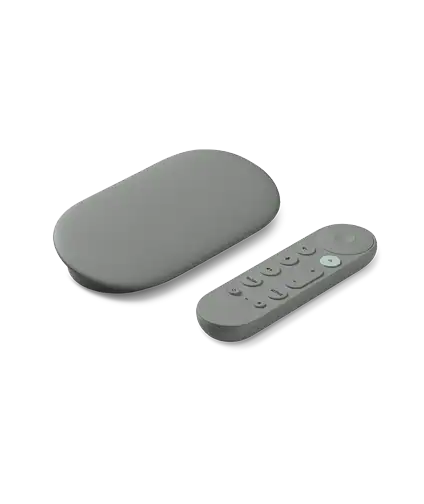
Conclusion
The Google TV Streamer (4K) represents a major evolution rather than just an incremental upgrade (source: Trusted Reviews). Google has reimagined their streaming device strategy, moving from a simple casting dongle to a comprehensive entertainment and smart home hub. While the price point is higher, the substantial improvements in performance, design, and functionality make it a compelling upgrade for most users, especially those looking for a more robust streaming solution.
The transition marks the end of the Chromecast era and the beginning of Google’s new approach to living room entertainment devices.
Key Takeaways
- Google TV Streamer replaces Chromecast with Google TV as the new device
- The Streamer offers updated hardware and a set-top box design
- Both devices run Google TV and support 4K streaming
Frequently Asked Questions
The Google TV Streamer replaces Chromecast as Google’s main streaming device. It brings more storage, faster hardware, and smart home integration, while Chromecast was simpler and lower in cost. Differences also appear in video quality, app support, and how each device handles navigation and control.
What are the main differences between Google TV Streamer and Chromecast?
Google TV Streamer uses a box-style design with ports for HDMI, USB-C, and Ethernet. It offers 4 GB of RAM and 32 GB of storage. Chromecast relied on a dongle form with less memory and no Ethernet port.
The Streamer also supports Matter and Thread for smart home control, while Chromecast focused only on casting media.
Can I use Google TV services on a regular Chromecast?
Older Chromecast models cannot run the Google TV interface. They only support casting from phones, tablets, or computers.
Chromecast with Google TV introduced a limited version of the Google TV interface, but it lacks the newer hardware and storage found in the Streamer.
What streaming quality can I expect from Google TV Streamer compared to Chromecast?
Google TV Streamer supports 4K HDR at 60 frames per second, along with Dolby Vision and Dolby Atmos.
Chromecast with Google TV also supports 4K HDR, but it has less processing power and memory, which can affect speed and multitasking.
Is there a difference in the range of apps and services available on Google TV Streamer versus Chromecast?
Both devices support major streaming apps like Netflix, Disney+, Prime Video, and YouTube.
The Streamer’s larger storage allows more apps and games to be installed directly. Chromecast relied more on casting content from other devices.
How does the user interface and experience of Google TV Streamer differ from that of Chromecast?
Google TV Streamer runs a full Google TV interface with personalized recommendations, app switching, and smart home controls.
Chromecast without Google TV had no interface—users controlled everything from another device. Chromecast with Google TV added an interface, but it is slower and less customizable than the Streamer’s version.
What are the price considerations when choosing between Google TV Streamer and Chromecast?
Chromecast with Google TV cost around $30 for HD and $50 for 4K.
Google TV Streamer costs about $100, reflecting its stronger hardware, extra storage, Ethernet support, and smart home hub features.

